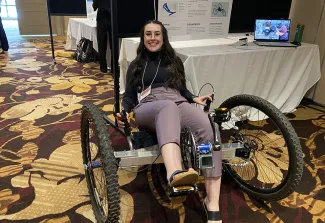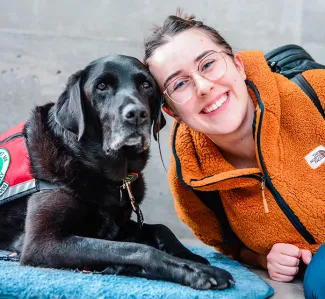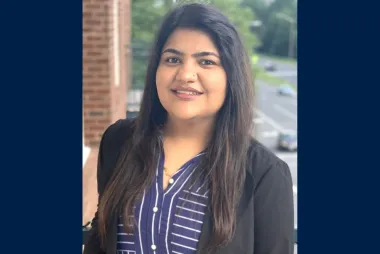Committed to sustainability, fascinated by research and dedicated to sharing her knowledge with others, Master of Applied Science student Madisyn Szypula sees engineering as a way to make a difference in the world.
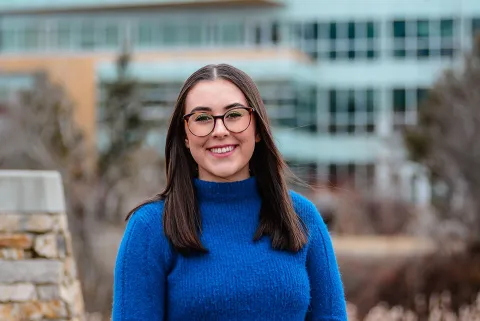
Madisyn Szypula
- Degree:
- Master of Applied Science
- Campus: Okanagan
An interest in STEM from a young age
Madisyn knew early on that she wanted to be an engineer. She’d long gravitated to STEM subjects and realized that engineering was a career where she could pursue her passions and do something practical to make the world a better place.
In Grade 11, she was selected to participate in UBC Okanagan’s Stewards in Engineering Education, a one-week program that gets high school students involved in engineering research projects. “It was very exciting to work with two graduate students on their research and to stay on campus in the dormitories,” she says. “That experience got me interested in engineering research and studying at UBC Okanagan – and coincidentally, my current lab is next door to the one I was working in then!”
Stewards in Engineering Education
Researching biocomposite materials as a graduate student
“My decision to do a master’s degree was motivated by what made me want to go into engineering in the first place,” she says. “It’s realizing that I can make the biggest difference by continuing my education, pursuing novel research and sharing my knowledge with others.”
Madisyn is doing a Master’s of Applied Science in mechanical engineering, focusing on biocomposite materials. She’s working with Dr. Abbas Milani and industry partner NetZero Enterprises Inc., which holds a patent to a chemical process called plastination that can be used to extrude moisture from natural fibres, like wood, flax and bamboo.
There are many applications of this technology, including in the lumber industry. Western Red Cedar, for example, can rot easily, but there may be ways to treat the wood using this process to block moisture and shield against microbial degradation. As Madisyn notes, “Because we are adding something to the material, we have the opportunity to add other materials, like nanoparticles, that could generate additional benefits, like reduced flammability or increased strength.”
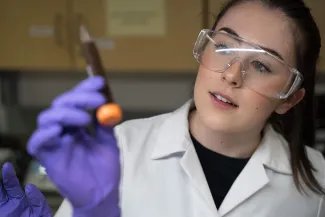
Dr. Abbas Milani NetZero Enterprises
Inspiring the next generation of engineers
Madisyn attended a small school that included students from Kindergarten to Grade 12, and she started a science club to give younger students more opportunities to explore science. When she got to university, she wanted to continue giving back and inspiring others. She connected with UBC Geering Up, starting out as an instructor and coding curriculum planner and then moving up to a leadership role to oversee all aspects of summer camps, workshops and outreach.
“I taught students from Kindergarten all the way to Grade 12 – introducing them to engineering and basically anything that overlaps with STEM. I think it’s important to diversify the STEM fields and show students who are quite young how interesting and fun it can be.”
She believes programs like Geering Up play an important role in diversifying the engineering profession thanks to its programs that have designated spaces for girls or programs that partner with First Nations communities from around the province.
“There is still a significant gender imbalance in some engineering areas,” says Madisyn. “In mechanical engineering, I am sometimes the only female in the room. Programs like Geering Up are important for getting more diverse people interested in STEM.”
